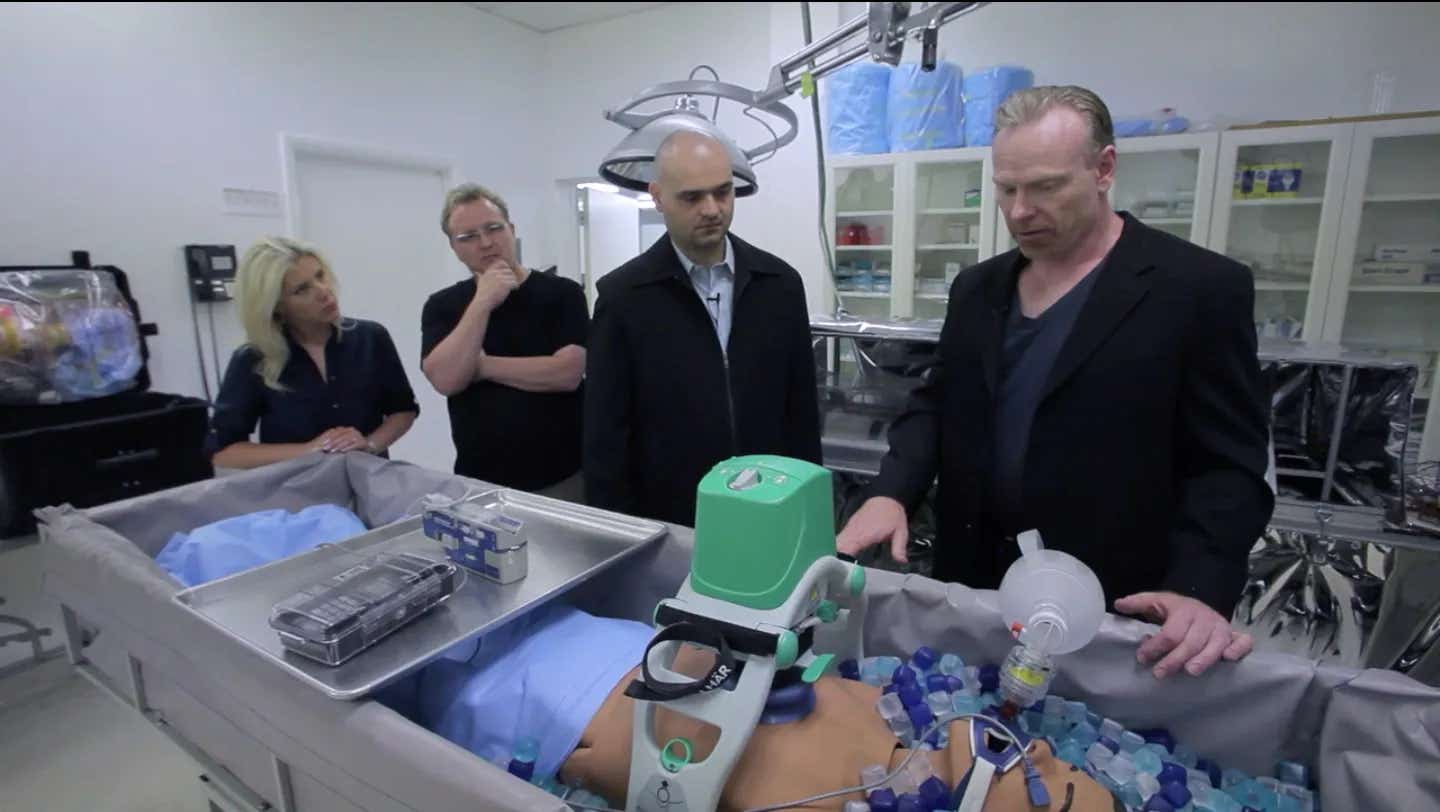Immortality within reach: Cryonics and the quest for eternal life
The pursuit of eternal life has been a cornerstone of mythology, religions, and popular culture for centuries.

The pursuit of eternal life has been a cornerstone of mythology, religions, and popular culture for centuries. Throughout history, from the Fountain of Youth to the Holy Grail, man's quest to overcome mortality has been seemingly unattainable. Yet, in today's scientifically advanced age, the dream of immortality could be closer to reality than previously thought.
Leading the charge in this quest for eternal life is Alcor, a firm located in Scottsdale, Arizona. This company prides itself on being the pioneer in the field of cryonics.
For the uninitiated, cryonics is the futuristic process of preserving a person's body or brain in liquid nitrogen post-legal death. The ultimate goal? To bring them back to life when technological advancements allow for it.
The procedure isn't cheap. A full body preservation with Alcor will set someone back a cool $200,000, accompanied by an annual maintenance fee of $705 after their passing. For those looking for a more budget-conscious option, Alcor offers neuro-preservation, where only the brain is conserved, for $80,000.
Related Stories
However, Alcor's British CEO, Max More, challenges the narrative surrounding the perceived exorbitant price of the procedure. More states, "Most people think: 'I don't have $80,000 or $200,000 lying around,' but neither did I when I signed up."
Speaking about his own journey towards embracing cryonics, he continues, "I signed up as a student in England, quite poor. Almost everyone, well the vast majority of our members, pay through life insurance. They just make Alcor the beneficiary. So for the vast majority of people, it's actually quite affordable. If you can afford to go out to Starbucks every couple of days for a coffee, you can afford cryonics."
Currently, Alcor boasts a membership of 1,379 individuals. This includes 184 patients who, having passed away, are now in the cryonic process. The company also offers family packages with notable discounts, and surprisingly, even offers cryonic services for pets, for those who wish to have their entire family preserved for a possible reunion in the future.
Memory Retention: The New Frontier
A significant concern, beyond the feasibility of reviving a cryonically preserved person, is whether memories can survive the preservation process. Alcor remains optimistic.
A 2015 study on worms indicated the potential of memory retention after cryopreservation. Natasha Vita-More, a researcher for Alcor and Mr. More's wife, shared her thoughts on the groundbreaking study, stating, "This is the first evidence of preservation of memory after cryopreservation. Further research on larger organisms with more complex nervous systems could prove beneficial to the issue of cryopreservation, especially memory retention after reviving."
Alcor was established in 1972 by Fred and Linda Chamberlain. Fred's personal experience, watching his father's health decline after a stroke, was the catalyst for the company's foundation. Interestingly, Fred became the first neuropreservation patient in 1976 after his passing. The founders' legacy lives on, with Fred being cryopreserved at the very institute he helped create.
While Alcor and its patrons view cryonics as the future of human preservation, the procedure hasn't been free from criticism. Numerous scientists challenge its viability. Although the concept has been a popular theme in science fiction, there's still a long way to go before cryonics moves from fiction to fact. No mammal, let alone a human, has ever been successfully revived post-cryopreservation.
Defending the legitimacy of his company's work, Mr. More said, "To me, cryonics is just an extension of critical care medicine. What you call dead is not a sharp line. It changes over time depending on your level of technology and expertise. Our job is to stop you from getting worse, to preserve you, and let the future have a shot at bringing you back."
He further challenges skeptics with a poignant thought, "It just means you don't want to die, you enjoy living. Why would you not do that? You'd have open-heart surgery or experimental cancer treatment, why wouldn't you do cryonics?"
As science continues to advance at a staggering pace, the lines between life, death, and the possibility of rebirth are becoming increasingly blurred. With companies like Alcor pushing the boundaries of what's possible, the age-old dream of immortality could one day be within mankind's grasp. Whether you view cryonics as a beacon of hope or a pipe dream, one can't deny that it's a tantalizing proposition worth exploring.
Note: Materials provided above by The Brighter Side of News. Content may be edited for style and length.
Like these kind of feel good stories? Get The Brighter Side of News' newsletter.
Joseph Shavit
Head Science News Writer | Communicating Innovation & Discovery
Based in Los Angeles, Joseph Shavit is an accomplished science journalist, head science news writer and co-founder at The Brighter Side of News, where he translates cutting-edge discoveries into compelling stories for a broad audience. With a strong background spanning science, business, product management, media leadership, and entrepreneurship, Joseph brings a unique perspective to science communication. His expertise allows him to uncover the intersection of technological advancements and market potential, shedding light on how groundbreaking research evolves into transformative products and industries.



